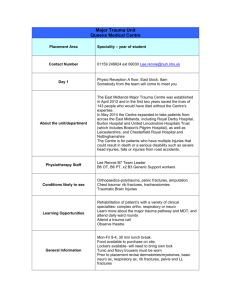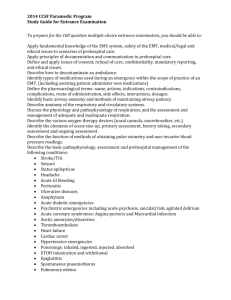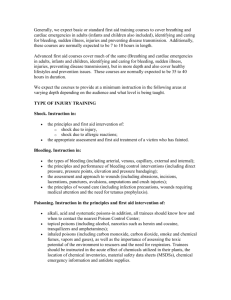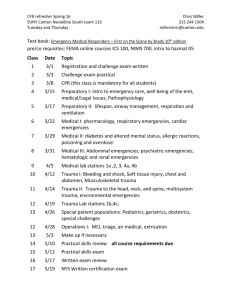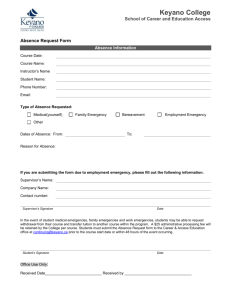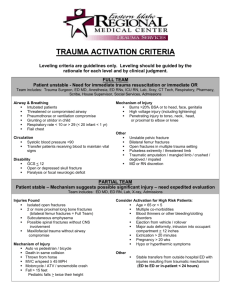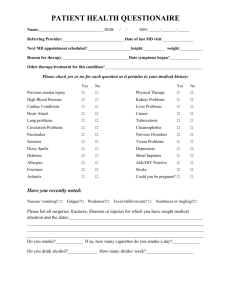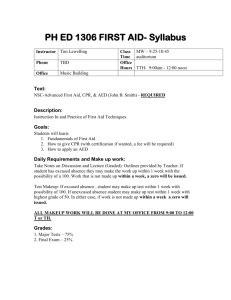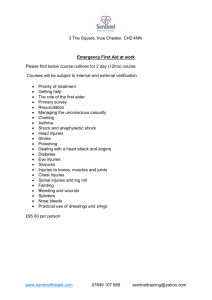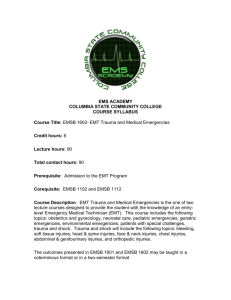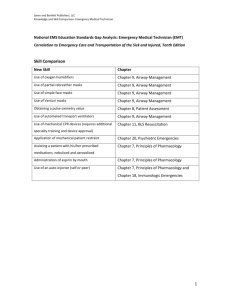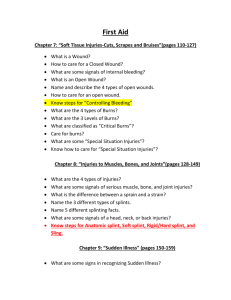Reading Topics - USC Emergency Medicine
advertisement
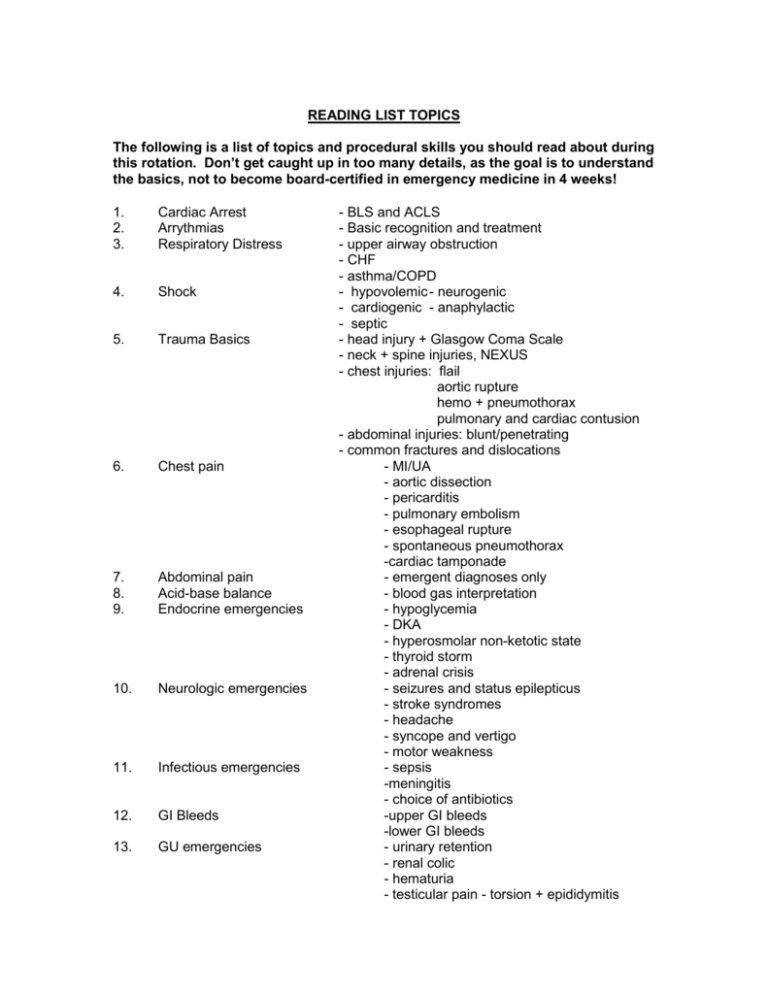
READING LIST TOPICS The following is a list of topics and procedural skills you should read about during this rotation. Don’t get caught up in too many details, as the goal is to understand the basics, not to become board-certified in emergency medicine in 4 weeks! 1. 2. 3. Cardiac Arrest Arrythmias Respiratory Distress 4. Shock 5. Trauma Basics 6. Chest pain 7. 8. 9. Abdominal pain Acid-base balance Endocrine emergencies 10. Neurologic emergencies 11. Infectious emergencies 12. GI Bleeds 13. GU emergencies - BLS and ACLS - Basic recognition and treatment - upper airway obstruction - CHF - asthma/COPD - hypovolemic - neurogenic - cardiogenic - anaphylactic - septic - head injury + Glasgow Coma Scale - neck + spine injuries, NEXUS - chest injuries: flail aortic rupture hemo + pneumothorax pulmonary and cardiac contusion - abdominal injuries: blunt/penetrating - common fractures and dislocations - MI/UA - aortic dissection - pericarditis - pulmonary embolism - esophageal rupture - spontaneous pneumothorax -cardiac tamponade - emergent diagnoses only - blood gas interpretation - hypoglycemia - DKA - hyperosmolar non-ketotic state - thyroid storm - adrenal crisis - seizures and status epilepticus - stroke syndromes - headache - syncope and vertigo - motor weakness - sepsis -meningitis - choice of antibiotics -upper GI bleeds -lower GI bleeds - urinary retention - renal colic - hematuria - testicular pain - torsion + epididymitis - urethritis - vaginal bleeding - ectopic pregnancy - PID - withdrawal/DT’s - Wernicke’s encephalopathy - gastritis/pancreatitis - hepatic encephalopathy - epistaxis - sore throat and airway obstruction - the red or painful eye - blunt/penetrating eye trauma - acute visual loss - general treatment - ASA - acetaminophen - sedative - hypnotic - cholinergic - tricyclic antidepressants - hypothermia/hyperthermia - near drowning - burns 14. Gynecologic emergencies 15. Alcohol related illness 16. ENT emergencies 17. Ophthalmologic emergencies 18. Poisoning + Drug Overdose 19. Environmental Emergencies 20. 21. Anaphylaxis Bites and Stings 22. 23. 24. Family Violence Psychiatric emergencies Pediatric emergencies 25. Orthopedic emergencies a) General principles - differentiation of soft tissue injuries: contusions/sprains/strains - differentiation of fractures/subluxation/dislocations - extremity infections: cellulitis/lymphangitis/necrotizing fasciiitis - compartment syndrome - acute arthritis -examination of the hand b) Hand and wrist injuries and infections - scaphoid fracture - felon, paronychia, subungual hematoma - boutonniere deformity, mallet finger - boxer’s fracture - Colles fracture - human bites - phalangeal fractures + dislocations c) Upper extremity trauma - radial head fracture - Nursemaid’s elbow - supracondylar fracture of humerus - animal bites - rabies prophylaxis - child, spouse, elderly abuse - violent patients - respiratory distress - fever workup and meningitis - dehydration - abdominal pain 2 26. - proximal humerus fractures - acromio-clavicular separation - shoulder dislocations - bursitis/tendinitis of the shoulder - clavicle fractures d) Pelvis and hip injuries - potential blood loss - associated injuries e) Lower extremity trauma - femoral fractures - ligamentous and meniscal injuries of the knee - ankle sprains, fractures and associated injuries Wound Management - tetanus prophylaxis This is a list of procedures that you should read about (indications, contraindications, method, complications and treatments). You will be able to assist or perform many of these during your rotation. This does not mean that you will get to perform all of them. In fact, due to the critical nature of many of our patients you will most likely not be able to perform the more invasive procedures. Airway management Defibrillation and cardioversion Cervical spine immobilization Intravenous access - peripheral + central NG tube placement and gastric lavage ABG sampling Chest tube insertion Suture techniques Splinting and bandaging Incision + drainage of abscesses Slit lamp use Nasal packing Foreign body removal 3
